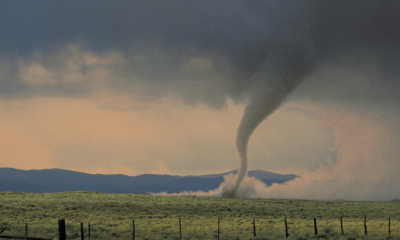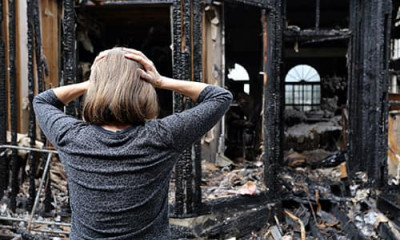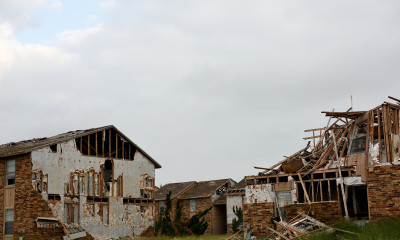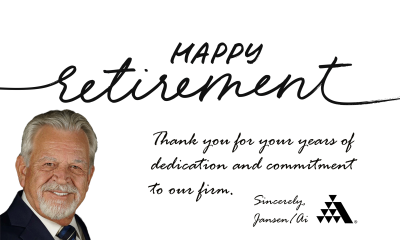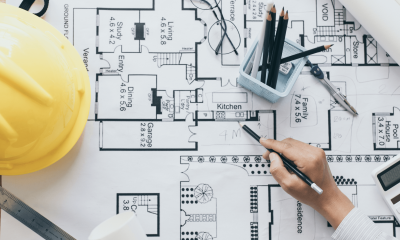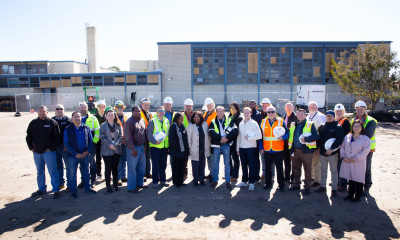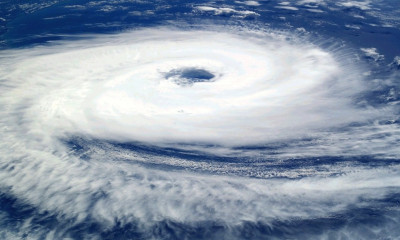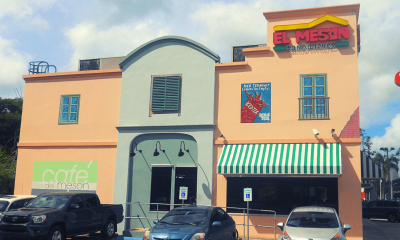The Best Insurance Tips for Multifamily Complex Investors
If you invest in multifamily properties, use this expert property insurance advice to your advantage.
Disasters can surprise us in different forms and can interrupt your business for months and years. A fire may start in one unit and spread to several others. Tenants may break leases and leave the property following a disaster.
The key to surviving these types of property damage loss is understanding your insurance policy and understanding your rights and obligations during a very time-consuming and stressful claims process.
For decades, multifamily investors have come to us for consultations, policy reviews, and claim help involving their single multifamily property or multimillion-dollar portfolios. There are many moving parts in an insurance claim and it can be catastrophic if you do not have the proper coverage in place at the time of a loss. This is a once-in-a-lifetime occurrence for many, and they do not understand how to maneuver within the claim process.
That is why Luis Esteves, the Principal and an Executive General Adjuster for Jansen/Adjusters International, recently gave a quick and insightful webinar for multifamily investors on what to know and what to ask as they review their policy coverages and have to begin the property claims process. You can watch it here.
Review your policy.
- Which perils do you have covered? For example, do you have complete windstorm coverage for your coastal multifamily property that is exposed to hurricanes, and how will a significant deductible affect your financial recovery? How about water damage coverage in case of a pipe bursting after a sudden winter freeze? Check the fine print of the endorsements and the exclusions in your policy to find out which perils you do not have covered.
- Find out the extent of coverage for both inside and outside your property. There may be limitations based on the cause of the damage. For example, coverage for hail damage or flooding will have specific exclusions and or restrictions. Do the same for the property and equipment used for the business, like landscaping equipment, pool furniture, golf cart, etc.
- Before your next policy renewal, have an assessment done on your property to determine the current replacement cost, considering the increase in construction cost that followed the pandemic. It could be 20% to 30% percent more than when you initially bought the policy, so you must consider increasing your insurance coverages accordingly.
- Ask your insurance broker (or our public adjusters) about your business interruption coverage and the difference between loss of profit coverage, loss of rent coverage, and extra expenses. Knowing the nuances is crucial to your business.
Be aware of code compliance, increased costs of construction, and endorsements in your policy.
If your building was constructed in the 1970s or 80s and suffers damage, you will have to rebuild it to meet the current codes. Building code updates may include a better roofing system, a sprinkler system, or rewiring the entire building (even the parts that were not damaged). Also, the building materials that will be required to do this — wood, steel, shingles, etc. — may be more expensive today than when you bought your policy. So overall, your coverage may not be adequate.
- Check the Law and Ordinance coverage in your policy.
- Check your declarations page for the limits and sub-limits of your insurance policy since Code and Ordinance coverage usually has a sub-limit.
- Understand your optional coverages or endorsements and what they may mean for the type of loss that you may have.
- If you bring your policy to us for a review from a property loss perspective, make sure it is an up-to-date copy so that we have all the endorsements that are in place.
You are responsible for mitigating your property damage and preparing your claim.
After a disaster, you have a list of duties you must fulfill, as outlined by your insurance policy, which, after all, is a contract between you and your carrier. If you ignore these responsibilities or get mired in some of the intricacies involved, your carrier may delay or even reject your claim. These duties include:
- Reporting the damage to your insurance company. Even after doing this, it may take fifteen days or longer until they arrive on the scene.
- Protecting your property from further damage and keeping a record of your attempts to mitigate the damage. For example, suppose there is a disaster resulting in water damage loss that also impacts other buildings and properties in your neighborhood. In that case, restoration companies may suddenly be in demand and you may have trouble getting service as soon as needed. As a result, the water damage may result in mold growth as the days or weeks draw on. You will need to prove that you took every effort to reduce the loss, including contacting contractors to mitigate your water damage insurance claim. Click here for expert tips on hiring mitigation companies and restoration companies.
- Presenting a proof of loss. This involves keeping records of your expenses, taking inventory of damaged contents, and producing an estimate of all the damage to the building.
Your ongoing challenges with the insurance company
- Moving tenants. If you have a large property, you can probably move those tenants to other buildings temporarily and not lose their rent payments. But there is a cost associated with moving the tenants. How do you properly document those costs to your carrier?
- Extra expenses. These expenses involve things that you have to spend more money on to lessen the overall loss. For example, you need a pipe for your chiller that burst right after a freeze. If you pay the extra cost to FedEx the pipe, you can have the chiller up and running sooner. If you do not, you may need to rent a temporary chiller for a month, which may cost thousands a month, or risk losing tenants. The cost of paying an extra $400 to expedite the part is very reasonable, and it qualifies as an extra expense to lessen the total loss.
- Delayed payment or a claim denied. If the insurance company is delaying your claim, perhaps saying they need more time to investigate, they must give you specific reasons. Likewise, if they deny your claim, they must also provide detailed reasons for the denial.
What is a public adjuster, and how can they help you?
Public adjusters are not associated with your insurance company and are licensed (in most states) to represent you in the property damage insurance claims process. There is a reason for that — when an insurance company brings their team of experts to protect their financial exposure to your claim, you have the right to bring your experts to level the playing field to get you the settlement you deserve.
- We organize the appropriate team of experts to handle every aspect of your claim for a full and fair settlement.
- We talk the same language as your insurance company, are fluent in the commercial policies for multifamily complexes, and make arguments on your behalf in areas where the policy may be gray. Then, we move the process along without delay so you can get paid the right amount.
- If increased construction costs present themselves, we make sure the insurance company accommodates this according to your policy.
- We advise you on the options outlined in your policy to soften and recoup business interruption losses.
We are advocates working only for you.
You pay a premium every year to protect your multifamily complex. It is worth taking another look at your policy, making revisions if necessary, and starting to strategize in the event of major property damage.
Our outstanding reputation has given commercial property owners the advantage in the claims process, providing full settlements that have saved time, stress, and livelihoods.
Contact our licensed public adjusters to help you in this process.
Related Case Study: Hurricane Laura & Delta Damage: Multifamily Structure



